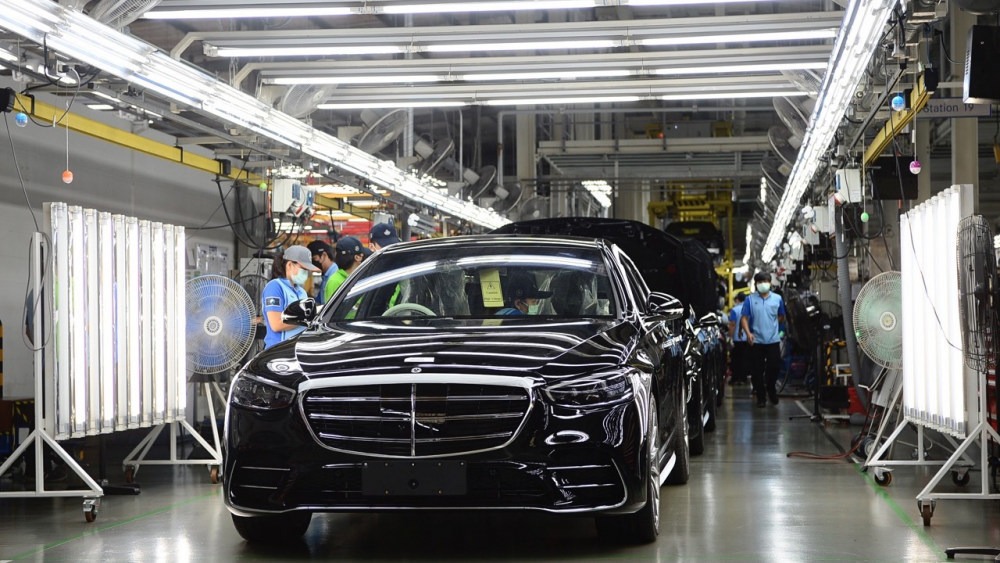Thailand has emerged as a promising option for automotive industry supply chain diversification, positioning itself as the automotive hub of Asia. With its well-established manufacturing know-how, strategic location, and favorable policies, the country has attracted foreign investors seeking to capitalize on its automotive prowess. In this blog, we will explore Thailand’s significant role in the automobile value chain and its journey towards becoming a leading player in the global automotive market.
Thailand’s Automotive Industry
Thailand boasts a robust automotive industry, accounting for nearly 12% of the country’s economic growth and employing over 500,000 people. The industry is primarily dominated by Japanese automakers, but American and European manufacturers are also gaining ground, particularly in the luxury car sector. This diversity in manufacturing capabilities contributes to the country’s strength as an automotive hub.
Strategic Location: Thailand’s geographic location at the heart of Southeast Asia makes it an ideal base for automotive manufacturing and distribution. Its proximity to neighbouring countries with growing markets, such as Indonesia, Malaysia, and Vietnam, has made it a strategic choice for automakers to establish their production facilities.
Foreign Direct Investment and Government Support: Foreign investors, particularly from Japan and the United States, are drawn to Thailand’s automotive manufacturing expertise and strategic location. The country has managed to attract significant foreign direct investment (FDI) in the electric vehicle (EV) industry, with the government targeting 30% EV production by 2030. To encourage international companies to shift their production to Thailand, the The Board of Investment (BOI) in Thailand offers strong policy support, including tax reductions and exemptions. The Eastern Economic Corridor (EEC), a special economic zone in Thailand, provides optimized logistics operations and connectivity to neighbouring countries, making it an ideal location for investors.
Thailand’s Competitive Advantage: Thailand’s competitive advantage lies in its strong policy package and favorable trade agreements. The government offers tax and non-tax incentives, such as corporate income tax exemption and import duty exemption, to attract foreign investment in the automotive industry. Additionally, Thailand has free trade agreements with several countries, providing competitive advantages in the importation of raw materials and components. This enables automotive manufacturers to streamline their supply chains and reduce production costs.
Green Vehicle Manufacturing: Thailand is also focusing on green vehicle manufacturing, particularly in the electric vehicle sector. With the support of the Eastern Economic Corridor initiative, the country aims to expand its automotive manufacturing industry to produce environmentally friendly vehicles. This aligns with global trends towards sustainability and positions Thailand as a key player in the future of the automotive industry.
Automobile Manufacturing Powerhouse
Thailand has become a prominent manufacturing hub for many global automobile companies. Some of the world’s largest automakers, including Toyota, Honda, Nissan, Ford, and General Motors, have established production facilities in the country. This has not only made Thailand a hub for automobile assembly but also for the production of automotive components and parts.
Cost-Efficient Production: Thailand offers a cost-efficient manufacturing environment, with skilled labor and competitive production costs. This has attracted automakers looking to optimize their production and reduce operational expenses.
Quality and Standards: Thai automotive factories adhere to international quality and safety standards, ensuring that the vehicles manufactured in the country meet global requirements. This focus on quality has contributed to Thailand’s success in exporting automobiles to various countries.
A Crucial Role in the Automobile Value Chain
Thailand’s significance in the automobile value chain extends beyond assembly. The country is a key player in the production of automotive components, serving as a vital link in the global supply chain.
Auto Parts Manufacturing: Thailand is one of the world’s leading producers of automotive components and parts. The country manufactures a wide range of components, including engines, transmissions, electrical systems, and plastic parts. These parts are not only used in vehicles assembled in Thailand but are also exported to assembly plants around the world.
Exporting Hub: Thailand has established itself as a major exporting hub for both fully assembled vehicles and automotive components. The country exports vehicles to over 100 countries, with key markets in Asia, Europe, and North America. Additionally, its role in the global supply chain ensures that automotive components made in Thailand find their way into vehicles produced by various manufacturers worldwide.
Research and Development: Thailand’s automotive sector is not just about manufacturing; it also invests in research and development. This includes developing advanced technologies, improving fuel efficiency, and working on innovative designs to meet the evolving demands of the industry.
Conclusion:
Thailand’s well-established automotive manufacturing know-how, strategic location, and government support make it a significant player in the automobile value chain. As the automotive hub of Asia, the country continues to attract foreign direct investment, particularly in the electric vehicle sector. With its focus on green vehicle manufacturing and favorable trade agreements, Thailand is well-positioned to contribute to the future of the global automotive industry.





